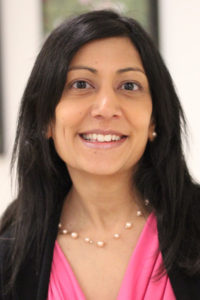
Five years ago, the US Food and Drug Administration first approved the use of antifibrotic therapies for the treatment of idiopathic pulmonary fibrosis. Though this advancement increased the options available to patients and clinicians, there remains no cure for idiopathic pulmonary fibrosis (IPF).
During a session Monday morning, four experts will review the latest information about antifibrotic therapy and discuss emerging therapies as well as considerations related to managing gastroesophageal reflux and lung transplantation in IPF patients.
The session, Update in IPF Treatment, will start at 3:15 pm in room 281 of the convention center.
Chair Nina Patel, MD, an associate professor of medicine and clinical director of the ILD program at Columbia University Medical Center, said now that the profession has been using antifibrotics for 5 years, it is an ideal time to review how antifibrotics have changed the field and patient care.
Presenter Mary E. Strek, MD, FCCP, a professor of medicine and director of the pulmonary medicine service at the University of Chicago, will present “Antifibrotic Therapy – Where Are We Now?”
“Even though antifibrotics have been available for a few years, many questions remain about when is the correct time to prescribe antifibrotic therapy,” Dr. Patel said. “Following Dr. Strek’s talk, attendees should have a good understanding of when to initiate antifibrotic therapy and how long to continue it.”
Mary Beth Scholand, MD, FCCP, an associate professor of medicine at the University of Utah, will present “GERD in IPF – Nissen’s for all?”
“Questions about anti-reflux therapy come up fairly frequently,” Dr. Patel said. “There’s been positive and negative data to support the use of medical therapy. Last year, the WRAP-IPF study looking at surgical therapy for GERD was published. While the study did not achieve its primary outcome, a number of interesting trends were seen in the secondary outcome measures. The conflicting studies are difficult to interpret, particularly as they apply to clinical practice. Dr. Scholand will review the data and try to make some conclusions about the best way to move forward when approaching treatment for gastroesophageal reflux in IPF patients.”
Clinicians also have struggled with conflicting evidence about the best way to approach lung transplant in patients with idiopathic pulmonary fibrosis, Dr. Patel said. To help pulmonologists make sense of the data, transplant pulmonologist Hilary Y. Robbins, MD, who is an assistant professor of medicine at Columbia University Medical Center, will present “Transplant in IPF– Single, Double or None at All?”
Finally, Dr. Patel will look ahead at emerging therapies for IPF.
“The last couple of years have shown a wealth of new clinical trials targeting novel mechanisms in IPF pathogenesis,” she said. “There are many potential new agents in the pipeline, so this is a good time to explore where we are, what clinical trials are out there, and what’s coming down the pike.”
As part of her talk, Dr. Patel will review any phase 2 data that has been published in the past year, including data on pentraxin and LPA antagonists.





